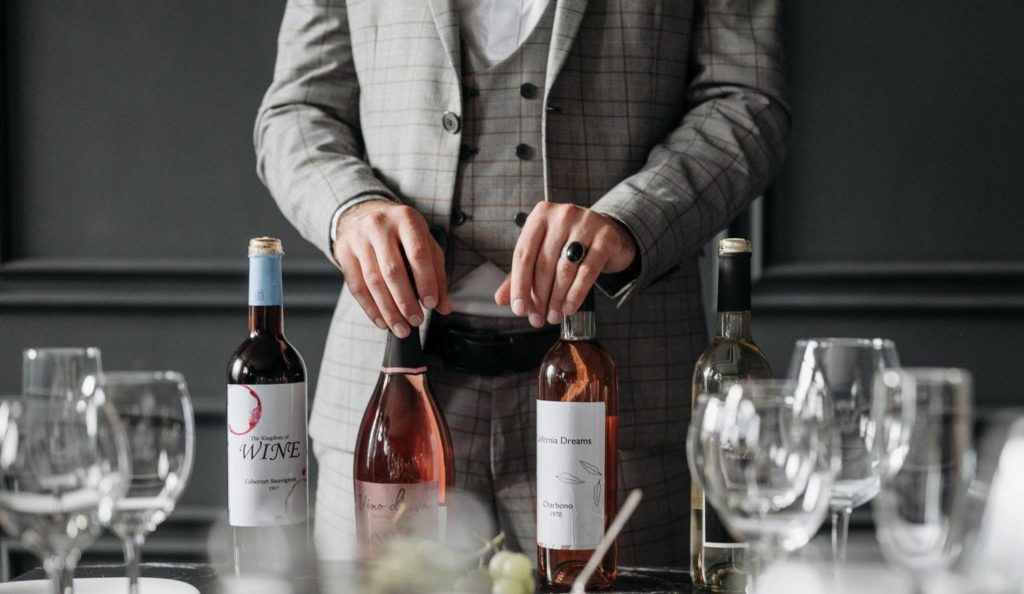
This is a guest post by John Adams
You may love drinking wine, but a host or guest might mock you if all you know is red and white. There’s nothing to be ashamed of if you enjoy every wine, whether it came from a $2 box at the grocery store or a $1,200 bottle at the fanciest restaurant in town.
However, that kind of attitude won’t impress anyone when you are looking at a sophisticated wine menu or are expected to suggest drinks to a cultured audience. People who know a thing or two about wine will pretend to be connoisseurs and steal the spotlight. Follow these steps and you will become an expert in less than a year:
1. Open and converge all your Senses
Wine experts do not drink wine; they experience it. The key is to embrace the 4 S’s:
- See it
- Swirl it
- Smell it
- Sip it
The colour of the wine can tell you a lot about its age and ageing process. White wines get darker with age, whereas red wines turn a lighter shade. When you swirl the wine, you notice its consistency and the action releases an aroma that hints at the ingredients of the wine. Indulge in the scents before taking your first sip.
2. Delay the Gulp
Wines are not meant to be scarfed down; you have to taste them and let every flavour settle in before you swallow. Swish the wine around your mouth for a minute or two to unleash the identity of all its components. The wine will taste different and more profound than when you throw it at the back of your throat instantly.
3. Develop your Palette
Repeat the above two steps every time you drink wine and you will eventually get the hang of it. You will begin to recognize a variety of brands, and their incorporated elements. You may guess how fresh or old a glass of wine is, as well as how it was prepared. Once you accomplish this, you are ready to advance further.
4. Go to Wine Tastings
In order to expand your wine wisdom, you should sign up for wine tastings in your area. Wine tastings are an excellent opportunity to get acquainted with a range of local and non-local varieties. You may run into a few wine aficionados and pick up a few tips.
5. Don’t get drunk at Tastings
If you drink every wine on the menu, you will get drunk hard and fast. A lot of things could go wrong; for instance, humiliating yourself in public or facing DUI charges. The right way to participate in wine tastings is to taste and emit – you are not supposed to gulp it down. You do the first two steps, but never actually drink all the wines.
6. Submerge in Wine Literature
Once you have tried and mastered most of the popular wines available in your locality, it is time to broaden your horizons. If travelling is a possibility, plan a wine-tasting adventure; otherwise, there is always good old literature for reference and guidance. You shall learn how to guess a wine’s geographical origin.
7. Try Bold and Complex Wines
When you feel that you are ready, you must test your palate with the boldest and complex wines. The boldest varieties include the Cabernet Sauvignon, Malbec, Petite Sirah, Syrah/Shiraz, and so on. Complex wines contain at least two fruity, and three additional elements, such as a spice, coffee, or something sweet.
8. Discover ‘Aha’ wines
While you’re experimenting with different kinds of wine, you will yearn to stumble across something that is truly unique and untried. When you find one that tastes nothing like you’ve ever had, this is your ‘aha’ wine. The ‘aha’ wine does not have to be good – it is just different and memorable.
9. Switch to Elegant and Subtle Wines
Your palate will be fried after testing yourself with all the bold, complex, and unusual wines. When these wines begin to bore you, change up the game. Switch to elegant and subtle wines, as they will truly determine if you have reached an expert level. Only someone refined can detect the hints of flavour in these wines and appreciate them.
10. Return to Basics
Finally, you go back to the basics to assess your wine mastering journey. Indulge in ordinary champagne, a sweet rose wine, or any other type you preferred as an immature. Unlike before, you will be able to distinguish the quality and perhaps develop an expensive taste; the cheap wines you enjoyed earlier may appall you.
Author Bio
John Adams is a lifestyle and travel blogger who loves sharing his personal opinions and experiences. He is a true foodie, reserving a special place for desserts in his heart. He encourages readers to take risks and live the life of their dreams.

Very good info!
Glad you liked the article.